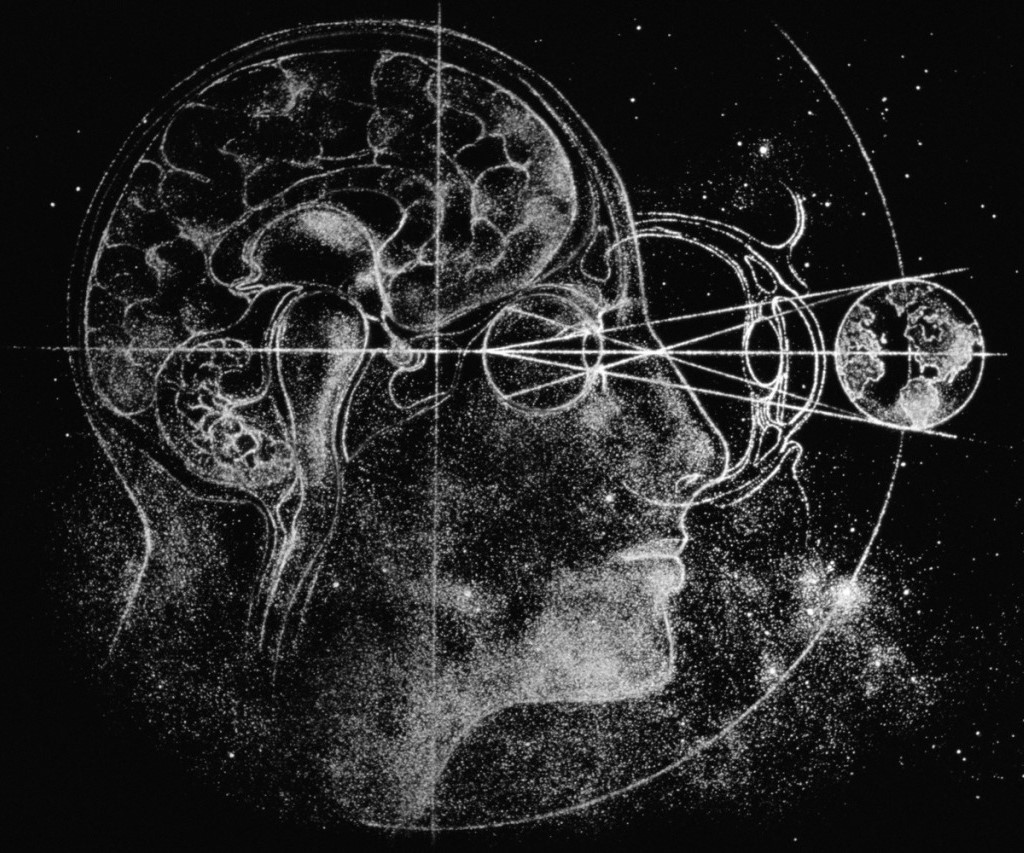Nature envelops one on a rainy day in spring more than on a sunny one. Even in a narrow strip of municipal parkland, the earth returns and belongs to its creatures on days like this, rather than to man.
 A male mallard floats at the water’s edge as I approach, and doesn’t swim or fly away. I slowly take a few more steps until I’m standing within ten meters of the beautiful animal.
A male mallard floats at the water’s edge as I approach, and doesn’t swim or fly away. I slowly take a few more steps until I’m standing within ten meters of the beautiful animal.
The mallard is perfect symmetry of contrasting colors—blue, green, white and gray. It eyes me as it paddles in eddies near the sandy shore. After two or three minutes it suddenly bursts into the air in an explosion of energy and life.
After a period of passive, choiceless observation of everything within and without, the mind spontaneously falls silent and there is an explosion of insight. The beauty of the gray skies and drenched foliage reaches deep, beyond the personal level, and reverence returns. Reverence in beauty is the passageway to the sacred.
In the complete quieting of thought/time in undivided, unwilled attention brings awareness of the omnipresence of death. Why does that have the highest value?
Because the state of being in which death is emotionally perceived as inextricably part of life opens the door to awareness of sacredness totally beyond thought.
Ending thought/time in complete attention, the brain enters a dimension in which death and life are palpably inseparable. A benediction comes, which can only draw near with the complete quieting of the mind-as-thought.
That word benediction once held a very different meaning to me. It’s an illustration of how organized religion misappropriates essential things, and then renders them meaningless.
Growing up Catholic in the days when the Mass was still in Latin, once a month there was something called benediction. It fell on a Wednesday evening, and often only the priest, altar boys and a few parishioners were present.
Incense was burnt in an urn on the end of a long chain, which the priest would swing in small circles to complete the ritual. One of my compatriots dropped the vessel holding the incense, spilling its contents onto the floor near the altar.
The priest that evening, who was well liked among the altar boys, had a rather irreverent sense of humor. Rather than get angry, he gathered us around the object and made it part of the ceremony. I was just in the 7th grade, and the incident changed my attitude toward ritual.
I could never take rituals very seriously again. I’m sure it wasn’t a lesson the priest intended to convey, though I’m not sure what he meant to convey, if anything.
Benediction as I now understand it pertains to the sacredness that sometimes comes when thought has folded its wings and withdrawn, wholly desisting in its ceaseless flight from what is.
One wonders why it’s so rare to feel an essence that goes beyond all emotion, much less conception. After all, the human brain, completely quieted of thought, is the universe aware of itself, an expression of the intelligence within and behind all energy and matter.
Since the universe evolves brains (ours cannot be the only one) capable of communion with Mind, and the evolution of symbolic thought pushed the human brain over the threshold of conscious awareness, why is thought such an impediment and complete stillness so unusual?
Clearly, there is intrinsic intent without extrinsic goal, an evolutionary unfolding without linear time. Clearly, brains evolve with the capacity for awareness of the universe and the intelligence without design within the universe. Clearly, that is the intrinsic intent and true telos of life.
Given that the human brain is, potentially, the universe aware of itself and the indivisible ground from which the universe sprang, why is it so difficult for thought to be completely still?
Misunderstanding the place of science is part of it, especially seeing knowledge as the be-all and end-all. But even that doesn’t get at the root of it.
The evolution of the mind-as-thought gave us the capacity for awareness of Mind without thought. Yet the incessantly chattering, self-concerned, memory-ladened and associating mind is a tremendous obstacle to realization.
That is the greatest contradiction. Can it be resolved into a paradox? Or is complete awareness only for the very few?
The morning brightens. The mind lets go of even such questions and is one with the beauty and silence of the earth.
A vulture flies directly over at treetop level, immediately followed by a screeching hawk taking the same flight path.
Martin LeFevre

